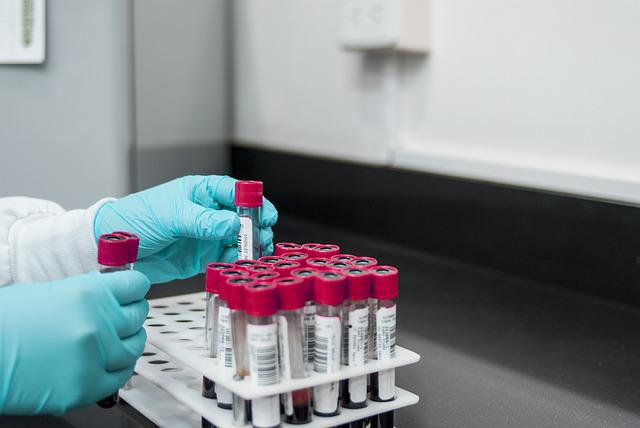
What does DHT do to your hair? Insights on DHT hair loss
Time to read 9 min
Time to read 9 min
The role of Dihydrotestosterone (DHT) as a key androgen involved in hair loss is widely analysed by doctors worldwide. DHT shortens the anagen (growth) stage of hair, making the regeneration of the hair cycle minimized for men. This can result in male pattern hair loss and the appearance of hair thinning.
DHT can also shrink hair follicles and can impact the regular cycle of hair growth long-term. It can bind longer to an androgen receptor which can speed up the production of testosterone in the body.
Based on key variations in the androgen receptor (AR) gene, some men will experience thinning and DHT hair loss faster than others. That is why it is best to get a complete DHT test done to understand the impact of the compound on your hair follicles.
Dihydrotestosterone (DHT) is a highly potent androgen that can control the cycles of the hair follicles. It is an endogenous androgen sex steroid that is produced through the catalysis of enzyme 5α-reductase from testosterone.
The conversion can happen in the prostate gland, seminal vesicles, skin, hair follicles, and brain. Through hair analysis and testing, you can determine the levels of DHT in the body. Medication and treatment strategies may be prescribed at higher or lower levels.
DHT also plays an important role in puberty, sexual health, and sexual development. It is also a precursor of other steroid hormones, which are required throughout the body. While DHT plays a role in hair loss it also has several other functions.
Male pattern baldness or androgenic alopecia is a key reason why men start to lose hair over a certain age. With about 10% of testosterone in the body being converted to DHT through 5-AR, it can link itself to hair follicle receptors causing them to shrink.
Higher DHT levels in the body can rapidly escalate the issue and decrease the ability of hair follicles to fully repair and regenerate. In many cases, high levels of DHT can also cause delayed recovery from injuries, some forms of cancers, and cardiac health issues.
That is why it is best to get a DHT test performed to understand whether medication or other protocols are necessary. The best approach is to get a hair fall treatment test done to find deficiencies, imbalances, and toxin exposures that could be negatively impacting your hair follicles.
The best approach is to opt for a comprehensive hair analysis and DHT test. A DHT hair loss kit can provide important information on the levels of DHT through a blood test, along with other essential information on minerals, vitamins, cortisol, etc.
Testing for DHT should also be performed via a blood test that comprehensively covers multiple factors. You should also get a toxin test done, to root out the possibility of toxin exposure as a cause for your hair loss problem.
DHT or Dihydrotestosterone testing can determine the levels of the compound in the body through a blood test. Cortisol and SHBG may also be a part of a hormone testing profile, along with testosterone testing as well.
The complete profile will help you get more analysis on DHT levels. You can then consult with a doctor about the best strategies to improve DHT levels, while ensuring a positive impact on your hair health.
In many cases thyroid testing is also recommended to ensure balanced T3 and T4 numbers in the body. Hormonal imbalances can cause hair loss, which should be analysed within a DHT profile.
Thyroid testing is also key as it provides deeper insights on one of the most common reasons for hair loss. By ensuring that your hormonal profile is balanced, you can focus on DHT medication, blockers, and topical medication to improve your hair quality.
For hair fall testing and understanding the role of blood markers, a blood analysis is recommended as well. Key levels, such as RBC, platelets, and WBCs help doctors understand whether there are underlying health conditions causing hair loss or infections affecting hair health.
Blood health markers also help us detect early signs of diseases and medical conditions. These could show up in the blood work, while also causing temporary hair loss. DHT may be playing a role in your hair loss, but untreated diseases or medical conditions can be the core reason.
The best approach for DHT testing is to opt for a home collection test kit. You can find the best DHT testing comprehensive packages online, and find the right one that offers multiple types of tests. You can follow the instructions mentioned and collect a quality sample.
It is important to acquire a DHT testing kit with blood marker, hormone, minerals, and inflammation markers, to help find the root cause of your hair loss issue. You should also perform multiple tests every few months to review your levels.
You can get your results emailed directly, which can help in receiving results faster. You can share your results with your doctor and have them chart out a viable strategy for your treatment.
You can opt for DHT reduction if your doctor recommends it for sudden hair loss or expedited hair falling. Through specific and general medication you can improve hair growth and limit hair loss caused by DHT and other factors.
The effects of DHT blockers help prevent the compound from binding to the 5-AR receptors. This aids in reducing the effects of the compound that shrink follicles. Inhibitors are also a key way to lower your body's production of DHT and can be prescribed by specialists.
Topical applications of Minoxidil and other medication can reverse some of the effects of DHT hair loss. It acts as a peripheral vasodilator which allows for better blood flow which promotes healthy hair production over time.
Supplementation that is directed towards hair growth, such as Biotin, are helpful in promoting healthy hair growth. It also helps boost and maintain levels of keratin, which is a key protein involved in the strengthening of hair strands.
You can also take vitamin B12 and B6 supplementation or injectable medication if you are deficient in these areas as well. This can help promote healthy hair growth and regenerate hair in lost patches.
There can be side effects that impact wellbeing and everyday functioning when on DHT blockers or other medication. Issues with libido, weight management, nausea, rashes, and darkening of hair can be significant side effects that you should be aware of. It is best to consult with a specialist if you start experiencing these side effects.
In many cases, DHT may not be the contributing factor in hair loss. You may have to get further testing done to uncover the real reason behind your hair loss.
These can include the following causes of hair loss, that may be emerging as a consequence of a primary condition or a symptom. You should get a complete health test done to understand the role of hair loss in your body.
A scalp infection could be the reason behind your hair loss, which may not show up as the root cause via a DHT test. You would require a complete medical examination, along with topical treatments, to improve your scalp health.
Scalp infections should also be treated quickly, before the problem escalates. As you can get a complete area analysis within a single session, it is recommended to get your scalp tested before you start any medication for DHT.
You should also get a complete thyroid analysis performed through blood test to determine any imbalances in your T3 and T4. Hypothyroidism and hyperthyroidism can cause hair loss, which can be reversed when the thyroid levels are brought to normal range.
You may have nutritional deficiencies, that are causing hair loss due to ineffective dietary choices. You can have issues with Vitamin B insufficiencies, which can be causing hair growth problems.
You can also be having issues with lack of mineral composition within your diet. You need the right balance of calcium, magnesium, zinc, and phosphorous to ensure healthy hair development.
Stress can create a sudden hair loss based response in the body, which could be caused by an autoimmune issue as well. Stress plays a vital role in our lives, but excessive stress can showcase signs of distressed hair follicles and inability to regrow hair.
You should make the right meditation and mindful practices, along with actively lowering stress through various strategies. By lowering stress or distancing yourself from stressors you can improve your hair quality as well.
Hormonal shifts, due to age or medical reasons, can cause hair loss in some individuals. You can experience significant hair loss that can be reversed when the hormonal issue is resolved. You can also experience additional symptoms that are generally indicative of hormonal issues, such as weight management, mood management, pain in joints, etc.
Using excess amounts of hair products, hair drying, and styling techniques can cause thinning and hair loss over time. It is best to use high quality products and limit styling, especially with hot air blow drying, to optimize hair quality.
If you are more prone to losing hair genetically, then you may need to be careful and get tested sooner. You should track your symptoms more closely and understand the role of DHT on your hair as per your genetic composition.
There are several strategies to improving hair quality naturally which can be followed to improve hair strength, appearance, and volume.
Several people use onion juice as a way to deter sudden hair fall as it has quercetin, which can improve circulation in the scalp. Onions also have antioxidant and anti-inflammatory properties which can help boost hair production and regenerate hair in patchy areas.
Eggs are an especially helpful tool if you have deficiencies that you need to target. Eggs contain healthy fats, vitamin B12, and zinc, which are some of the most important nutrients required for hair growth.
Turmeric contains curcumin, which can help improve hair growth and enhance the quality of hair in some people. It can be procured through diet, and can help in improving the appearance of hair over time.
Spinach, kale, and other green leafy vegetables are vital for hair health and growth as they contain key micronutrients that are essential for hair development. Spinach contains vitamin A, iron, beta carotene, folate, and vitamin C, which are required for hair growth and maintaining hair quality.
Coconut oil is widely used as a quality hair loss deterrent, as it can improve hair quality and rejuvenate hair follicles. It contains a high amount of fat from medium-chain triglycerides (MCTs) which can improve follicular strength and curb some of the effects of rapid hair loss.
You should focus on the following vitamins and minerals for hair growth -
1) Vitamin B12 - The vitamin promotes the production of oxygen-rich red blood cells, feeding hair follicles directly.
2) Vitamin A - All cells need vitamin A for healthy development and growth, which is why it is important for hair.
3) Vitamin B9 - Vitamin B9 accelerates the growth stage of hair and aids in slowing greying.
4) Vitamin D3 - Low levels of Vitamin D can cause hair thinning and issues with hair growth.
5) Iron - Iron is a key element that helps red blood cells carry oxygen for optimal hair growth.
6) Calcium - A calcium or D3 deficiency can cause brittleness in hair.
7) Phosphorous - Phosphorous enhances hair quality and prevents greying.
8) Magnesium - Magnesium aids in creating the protein of the hair, which is why it is a key mineral.
9) Zinc - Zinc helps in hair tissue growth and repairing for hair follicles.
It is also important to get a complete vitamin and mineral profile test performed to find any major deficiencies that could cause hair loss.
*Medical Disclaimer - The following information is for educational purposes only. No information provided on this website, including text, graphic, and images, are intended as substitutes for professional medical advice. Please consult with your doctor about specific medical advice pertaining to your condition(s)





